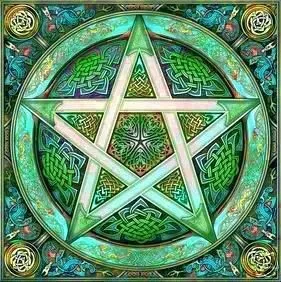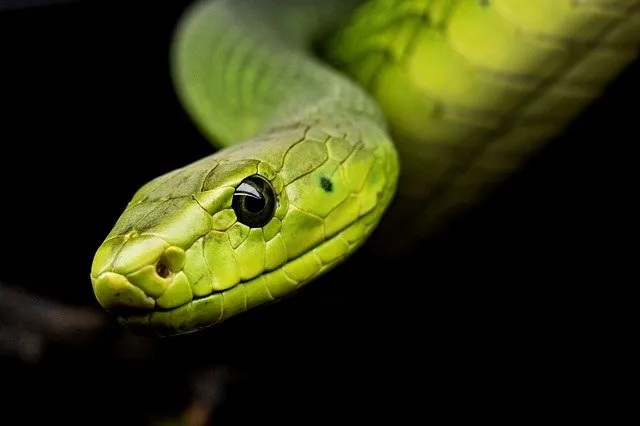
Path Highlight: Wicca
Paganism is an umbrella term that covers several spiritual belief systems. While their pantheons, rituals, and histories differ they all share a common reverence for nature. Among the various pagan paths, Wicca is probably the most well-known and widely practiced with an estimated 1 million-plus practitioners in the United States alone.
Developed in England during the late 20th century, Wicca was introduced to the public in 1954 by Gerald Gardner. While it claims a direct lineage to pre-Christian spirituality, it is a modern neo-pagan religion. Though it is widely acknowledged that Wicca is inspired by pre-Christian European spiritual beliefs; the claims of a direct lineage have been a topic of debate in the pagan community for many years and no definitive proof of such connection has ever been produced. However, this lack of ancient lineage does not take away from the rich spiritual tradition that is Wicca and it shouldn’t deter people from exploring this magical path.
Much like Christianity, Wicca has several different denominations or traditions. These include Gardnerian Wicca, Alexandrian Wicca, Dianic Wicca, Seax-Wicca, Eclectic Wicca, and Solitary Wicca. Among these various traditions is a shared belief in Deity manifesting as a masculine God and feminine Goddess, a human spirit that survives death and can be reincarnated, magick, the Law of Attraction, gaining power through knowledge, living in harmony with nature, the importance of the lunar cycles, eight annual holidays known as the wheel of the year, and the philosophy of harm none.
Gardnerian Wicca is the original form of Wicca founded by Gerald Gardner. Considered the most secretive form of Wicca it uses a set of elaborate rituals and has a hierarchy based on degrees of training. It is an initiatory tradition and one must be initiated into this form of Wicca by another Gardnerian Wiccan, preserving a lineage that can be traced back to Bricket Wood Coven which was founded by Gardner. Three things that set this form of Wicca apart from others are its emphasis on using Gardner’s original Book of Shadows, its deep secrecy, and the practice of performing ritual skyclad aka naked.
Alexandrian Wicca was founded by two of Gardner’s students, Alex and Maxine Sanders, in the mid-1960s. As an adaptation of the Gardnerian Tradition, it shares the uses of set rituals and practitioner hierarchy. It is however far less secretive and gives practitioners much more room to personalize their practice. Another way in which Alexandrian Wicca distinguishes itself is by giving practitioners the option to wear ritual clothing rather than just going skyclad.
Dianic Wicca was founded in the United States in the early 1970s by Zsuzsanna Budapest. While sharing the same set of holidays and reverence for the forces of nature and magic as earlier Wiccan traditions, Dianic Wicca differs significantly from the versions of Wicca that came before it. Feminine-focused Dianic Wicca moved away from the dualistic model of the God and Goddess and instead, focused on the supremacy of the Goddess. This is reflected in the coven structure which is far less organized, only initiates women, and encourages its members to be aware of and combat the political and social oppression of women. While the Budapest lineage of Dianic Wicca has remained all women to this day, an offshoot of Dianic Wicca founded by Morgan McFarland and Mark Roberts does initiate men into their covens.
Seax-Wicca is another Wiccan Tradition founded in the United States. Established in the 1970s by Raymond Buckland, Seax-Wicca adapted Gardnerian Wicca to better suit American culture. This came to be when Buckland tried to start a Gardnerian coven in New York but found that the hierarchical structure clashed with Americans’ competitive nature resulting in battling egos and drama. Unlike other forms of Wicca, Seax-Wicca does not emphasize secrecy, linage, coven hierarchy, or the reliance on a book of shadows. Instead, Coven leadership is elected on an annual basis, practitioners can self-initiate, and members are encouraged to study and adapt rituals to fit their needs. Though rather free form Seax-Wicca does emphasize the study of divination, herbal lore, and 5th-11th century Anglo-Saxon Witchcraft.
Eclectic Wicca like all forms of eclectic paganism is less of a “tradition” and more of an individualized spiritual path. While Eclectic Wiccans will follow the Wheel of the Year and many of the common tenants found in all Wiccan traditions their rituals and practices are uniquely their own. More so than any other form of Wicca, Eclectic Wiccan practice blends aspects of other spiritual traditions both Pagan and Non-Pagan with the Wiccan framework. Because of this, each individual’s practice has its own feel and it is very rare to find two Eclectic Wiccans with identical practices. Frequently self-taught it is most common to see Eclectic Wiccans having a solitary practice though a handful of Eclectic Covens and informal Wiccan circles do exist.
Solitary Wicca is just as it sounds, a Wiccan path where the practitioner is not a member of a coven. Solitary practitioners can follow any of the Wiccan traditions, though Eclectic is most common, and they learn from books, podcasts, youtube videos, and informal Wiccan circles. Many Wiccans start their journey as solitary practitioners before joining a coven and some choose to permanently stay solitary or adapt their solitary practice into a family practice. Though more and more rituals are being designed for the solitary practitioner it is not uncommon for them to have to adapt a group ritual to be performed solo.
Wicca is a living tradition that continues to shift and grow with time. There is no one tradition that is superior or more “right” than any other, there is no eternal damnation for picking “the wrong one.” There is only nature, the divine, and what speaks to an individual’s spirit. So if you choose to explore the beautiful spiritual path that is Wicca don’t stress about getting it perfect just follow your intuition and blessed be.
You May Also Like

Seven Sacred Directions
June 18, 2023
The Power of Trees
March 12, 2023